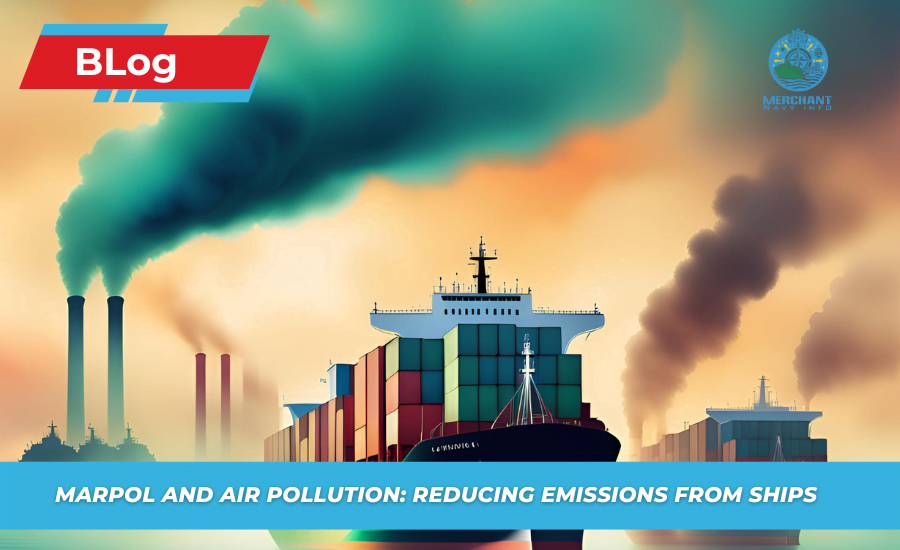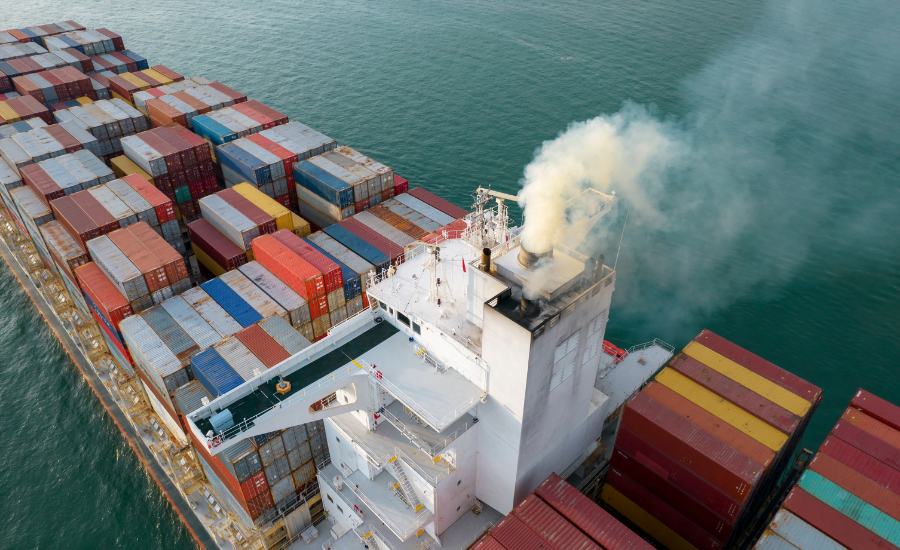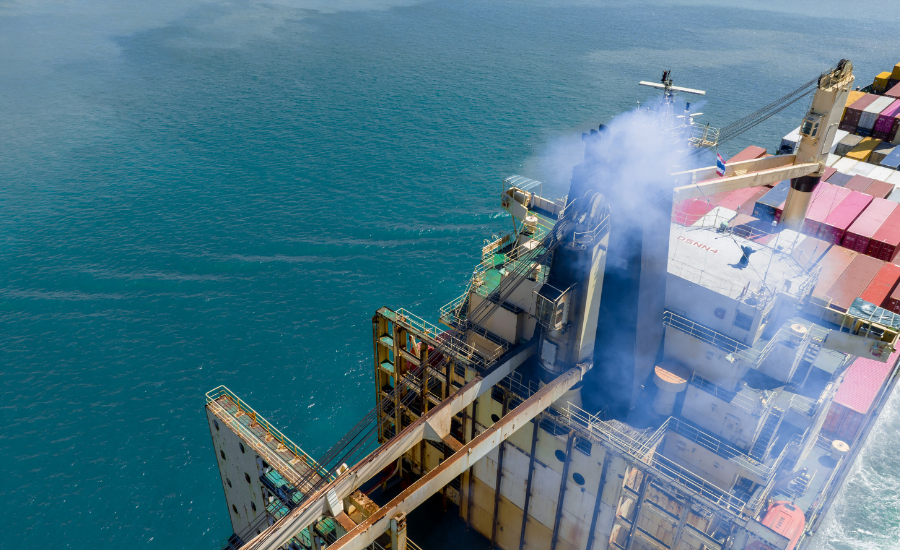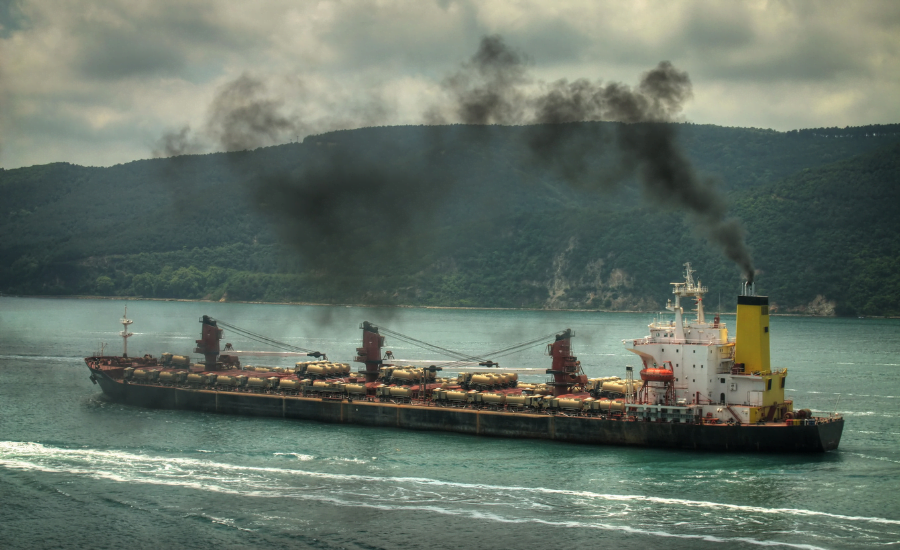
MARPOL and Air Pollution: Clearing the International Ship Sources of Air Pollution
Face the facts; almost everyone wants to sail in the middle of the ocean. There seems to be a curiosity or, let’s say, the romantic idea about the large vessel gliding through the vast seas and continents to connect the Far East. However, amidst this romantic vision, we must not overlook the stark reality: these vessels, as essential modes of transport especially for international business and trade, are also known to emit many gases into the atmosphere. Moreover, this is where MARPOL, the forgotten hero of maritime environmental safety, enters the scene to reduce the effects of ship emissions and chart the course towards a new, cleaner world for our oceans and the planet.
Why Does the Emissions from Ships Matter?
If all you think of air pollution is what goes down the streets of major cities, then you need to think broadly. Ships, especially those that depend on HFO, are mobile sources of power responsible for the consumption of massive amounts of fuel and the emission of sundry pollutants into the atmosphere.
It involves the emission of sulfur oxides (SOx), nitrogen oxides (NOx), particulate matter (PM), and greenhouse gases. These pollutants do not disappear in the atmosphere; winds transport them to neighbouring coastal towns, cities, and the interior.
The implications for people’s health are rather severe. Research has further associated ship emissions with a variety of respiratory disorders, cardiovascular conditions and even premature death.
Speaking of human life, it is also under threat, including the entire sea life and the balance of the Earth’s climate. It is not to mention its effects on the environment by directly contributing to acid rain on the ocean and the acceleration of global warming, at least among other effects that we are at risk of facing if ship emissions continue as they are.
Not only are human lives at risk, but marine life’s livelihood and the balance of Earth’s climate system are also at risk. Some environmental impacts of uncontrolled ship emissions include acid rain, ocean acidification, and worsening global warming.
MARPOL to the Rescue
Faced with this environmental test, we have the International Convention for the Prevention of Pollution from Ships, also known as MARPOL. MARPOL should be considered the rulebook for the entire maritime sector. It describes each aspect of pollution in black and white, with the maximum allowable standards set on the amount of pollution that ships are allowed to emit.
Regarding air pollution, MARPOL has been gradually intensifying its measures and putting increasing pressure on shipping companies to change policies that would improve the sector’s environmental state.
Also read: What is the IMDG Code Dangerous Goods Classification?
Key MARPOL Regulations on Air Pollution:

SOx and PM:
The MARPOL convention has actively reduced the allowed sulfur content in marine fuel. This translates to a clear mandate for ships: either use cleaner fuels or fit their vessels with exhaust gas washing systems, or scrubbers for short. In equal fashion, MARPOL limits the amount of particulate matter emissions allowed, thus protecting the quality of the surrounding air.
NOx:
Because nitrogen oxides are considered harmful emissions, MARPOL has set tiered limitations on NOx emissions for newly built vessels. These limitations depend on the engine type and the regions where the ships are used. Most importantly, these limits become progressively tighter with time to stimulate the use of cleaner and more advanced engine technologies.
Greenhouse Gases:
Even though they are not considered ‘criteria’ pollutants that harm the air and human health, greenhouse gases endanger Earth’s climate balance. MARPOL recognizes this and has started responding to ships’ Greenhouse Gas emissions. The major concern is improving the efficiency of utilized energy sources and investigating the possibility of adopting new materials to restrain the maritime industry’s emissions.

Real-World Impact: Is IT Making a Difference?
The answer seems to be a loud yes. A literature review of various research papers conclusively establishes that MARPOL has gone a long way in addressing the ever-increasing emission of pollutants from ships. We are observing a real-life qualitative improvement of the atmosphere of port cities and coastal areas, and that translates, in concrete terms, to the enhancement of the quality of lives of several millions of people.
In this case, the advantages go a notch higher than people’s welfare. Responsibilities such as decreasing acid rain and decreasing the deposition of suspended impurities in the atmosphere are significant in protecting frail terrestrial and aquatic environments.
All in all, it is pertinent to note here that the progress made so far is not bad, but at the same time, it must also be understood that the mission of making the shipping industry cleaner is still ongoing. Implementing the MARPOL measures, especially on the hectares of the High Seas, requires iron-clad international cooperation and a reliable monitoring tool.
Further, the shipping industry has rich dynamics; changes in technologies and fuels are shifting faster. Even more importantly, MARPOL cannot afford to become static. It has to evolve new regulations to accommodate these advancements and continuously prove its relevance.
However, the general trend depicted here depicts change for the better. Therefore, it goes without saying that the MARPOL convention impacts the environmental footprint of shipping and the state of planet Earth positively and quite significantly.
Human Side of the Equation and MARPOL
When the complex regulatory environment, emission standards, or limits can capture us, it is pertinent that we do not forget that this is fundamentally a social issue. MARPOL is not an environmental convention on paper; it aims to preserve the lives of thousands of people worldwide.
Think of living in an area surrounded by black smoke from ships, which makes the air thick and hard to breathe at all times. Everywhere, children with asthma feel as if the air is becoming progressively thick, making it highly challenging for them to breathe; the elderly are highly coerced into staying indoors, and the constant fear of long-term health implications affects individuals in this community.
MARPOL is actively rewriting this narrative. Reducing emissions from ships is this community’s salvation, giving them a shot at a better and healthier quality of life and living in the fullness of their fundamental right to life.
Barriers and the Future
It must be stated that MARPOL has achieved numerous successes in preserving the ocean environment, even though certain challenges will likely be encountered in the future. Let’s explore some of the key challenges that lie ahead: Let’s explore some of the key challenges that lie ahead:
Enforcement:
Enforcing vessel compliance with Marine Pollution Control and Prevention (MARPOL), especially in regions of international waters and the high seas that possess little legal control, is complicated. It requires constant global cooperation, the development of prompt supervision and implementation, and determination to punish offenders.
Technological Advancements:
The shipping industry is dynamic, with constant changes and a tendency to embrace technology. MARPOL must also continue updating its rules and regulations to accommodate the latest technologies and fuels for use in ocean-going vessels and stay above board in its efforts to check the negative impacts of greenhouse gas emissions.
Read more: What is the Ship Oil Pollution Emergency Plan (SOPEP)?
Climate Change:
As this paper has shown, MARPOL has progressively worked toward regulating greenhouse gas emissions from ships. However, the climate change emergency requires greater action. Therefore, integrating MARPOL with the goals of the Paris Agreement and driving the aggressive decarbonization of the global shipping industry will be critical key steps in reducing the industry’s contribution to climate change.
On a positive note, the challenges facing today’s container liner shipping industry are being met squarely by the IMO and the international maritime community. The opinion has been shared that reducing the impact of climate change by making the maritime industry more environmentally friendly and green is possible and essential for the future of the world’s shipping industry.

Beyond MARPOL: Steering through Clearer Ship Channel
As we have pointed out throughout this paper, despite MARPOL being a vital tool in combating pollution from ships, it is not the total end to the problem. There is no single solution. A comprehensive set of measures needs to be taken to create the long-term, high-quality development of the sustainable maritime industry.
But first, for even less of a shipping footprint on our environment — here are some other avenues we can engage in as well:
Energy Evolving — Cleaner Fuels: Adopting a More Sustainable Energy Model
This shift to cleaner fuels is a key step in the fight against air pollution from ships. This can be largely prevented by using cleaner fuels, lowered sulfur content enabled, or other zero-emission ideas such as hydrogen and ammonia. This change is good for the environment and mirrors a broader global movement to reduce carbon emissions in the energy sector.
Energy Efficiency for Performance and Waste Minimization
Furthering ships’ fuel performance is likewise an essential tactic for cleaner shipping. With optimized ship design, improved operations, and energy-efficient technologies, we can save large amounts of fuel, which means fewer emissions.
This approach has obvious environmental benefits and brings commercial savings to ship operators through reduced fuel costs.
Shore Power: Plugging Into the Future
Many cruise ships run their engines to produce power for the ship while berthed in a port community. However, this practice is a major source of air pollution in the port vicinity. This provides the option to connect with shore power or cold ironing. Taking ships off the burning of diesel fuel for onboard power generation is a big prize. It could do good things to clean up air quality in coastal communities everywhere and make serious cuts in emissions.
Also Read: A Guide To Ballast Tanks On Ships
Alternative Propulsion: Alternative Ways to Find Innovative Power
Alternatively, new propulsion technologies are being studied and adopted that have the potential to revolutionize the shipping industry and reduce its environmental impact. Wind-assisted propulsion systems can utilize natural wind energy to supplement the conventional engine, thus reducing fuel consumption and lowering emissions. Moreover, fully electric ships powered by renewable energy might just mark a new frontier for clean and sustainable sea transport.
Conclusion: A Breath of Fresh Air
Undeniably, MARPOL is playing a very important role in reducing air pollution from ships. This convention reflects the unparalleled force of international cooperation, an unwavering commitment to protection from health hazards, and a keen balance of the ecosystems of our host planet.
This journey to cleaner and greener shipping is an ongoing process. Doubtless, there will be future challenges, but the present successes also provide good reasons to feel hope and optimism. Continuous commitment, innovation, and a will by all can build that future wherein the spectre of pollution does not blemish the beauty of the open ocean nor dim the magic of men’s communion with nature.
Until such time, let us strive together when the billowing sails of ships are filled, not with poisonous fossil fuel fumes, but with refreshing breaths of pure air. A future in which the romance of the open ocean is coupled with a commitment to environmental stewardship and a deep respect for the planet we call home.ices is imperative for our planet’s health and maritime trade’s future.









